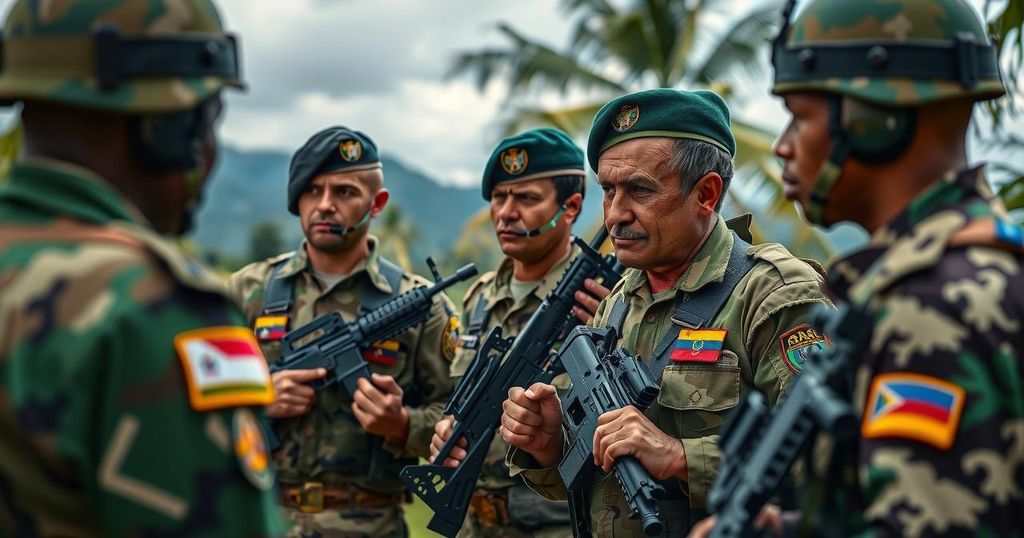Russia Deploys Military Instructors to Bolster Security in Equatorial Guinea
Approximately 200 Russian military instructors have been sent to Equatorial Guinea to train security units assigned to protect President Teodoro Obiang Nguema Mbasogo, potentially solidifying Russia’s influence in Central and West Africa. The initiative includes possible contributions from Belarusian military personnel and airborne forces, aimed at ensuring security for the president’s son, a likely successor.
In a significant move to bolster security in Equatorial Guinea, approximately 200 Russian military instructors have been deployed to the country. Their primary objective is to train specialized security units responsible for safeguarding President Teodoro Obiang Nguema Mbasogo. Furthermore, this initiative is likely to incorporate personnel from Belarus and elements of Russian airborne forces. A crucial underlying aim of this mission appears to be ensuring the protection of President Mbasogo’s son, Teodoro Nguema Obiang Mangue, a wealthy figure regarded as a potential successor. This operation signifies Russia’s broader strategy to enhance its presence and influence in Central and West Africa, particularly in Equatorial Guinea, where a number of Russian mercenaries are already engaged in supporting local military regimes against insurgent threats. President Mbasogo has maintained authority in Equatorial Guinea since he ascended to power through a coup in 1979, underscoring a long-standing political environment in need of steadfast defense measures.
The deployment of Russian military instructors to Equatorial Guinea reflects ongoing geopolitical shifts within the region. Russia’s interest in establishing a foothold in Central and West Africa is evident through its support of various military regimes. The presence of Russian mercenaries in the country highlights a trend of increasing collaboration aimed at reinforcing the security of powerful allies, particularly authoritarian leaders who maintain favorable relations with Moscow. President Mbasogo’s prolonged rule and the subsequent rise of his son as a prospective successor demonstrate the significance of this security partnership.
The arrival of Russian military instructors in Equatorial Guinea underscores an escalating effort by Russia to fortify its influence in Africa. By training elite security forces dedicated to protecting President Mbasogo and his family, Russia is aligning itself with long-established regimes while simultaneously enhancing its geopolitical stature within the region. This strategic move could have broader implications for the stability and political dynamics in Equatorial Guinea and its neighbors.
Original Source: 112.ua




Post Comment